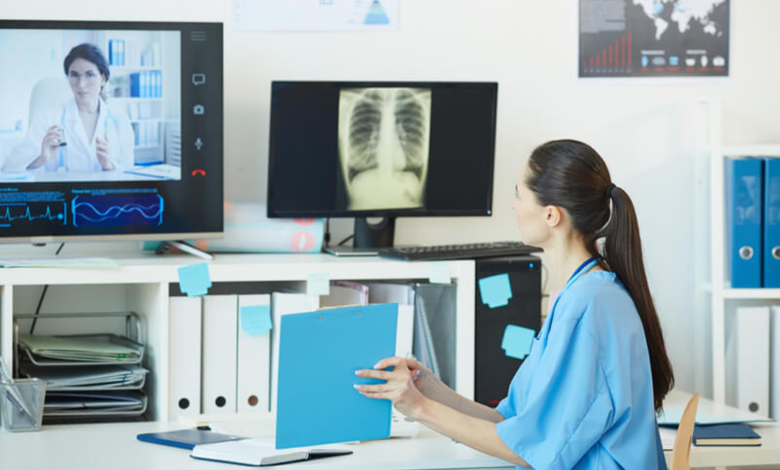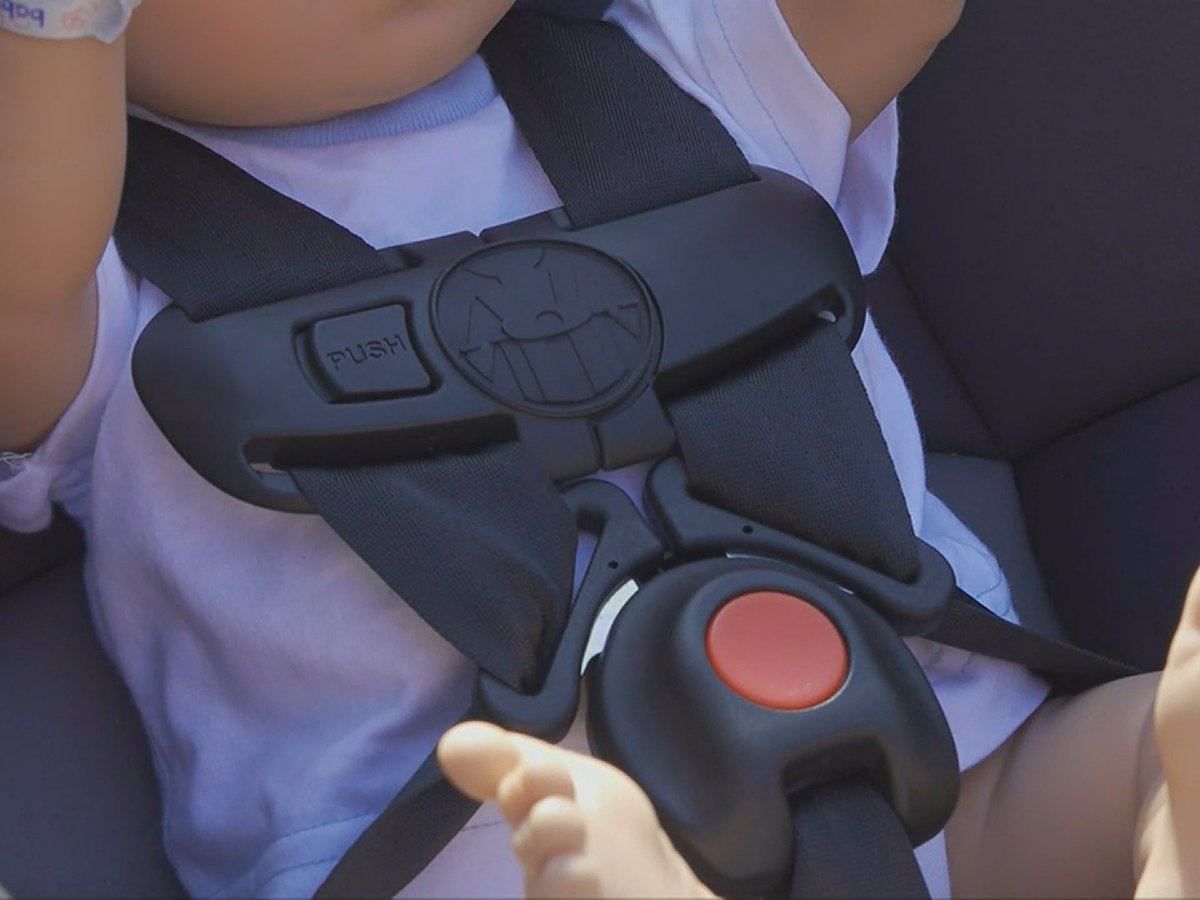Innovative Technologies Transforming General Practice
Innovative technologies transforming general practice are revolutionizing healthcare with telemedicine. Discover the latest advancements here.

The healthcare industry is changing due to innovative technologies that are revolutionising general practice and improving patient care’s accessibility, efficiency, and personalisation. These developments, which range from wearable health technology to telemedicine and artificial intelligence, are not only enhancing the skills of general practitioners but also completely changing the way patients interact with them. Keeping up with the latest technological developments is crucial for healthcare professionals who want to deliver state-of-the-art treatment and enhance patient outcomes.
In today’s fast-paced world, adopting these advancements is not only a trend, but a necessity. As AI and machine learning push the limits of diagnostic accuracy, technologies like electronic health records and mobile health applications streamline administrative work and improve patient engagement. A more efficient, patient-centered approach can result from comprehending and utilising these technologies in general practice, raising the bar for healthcare delivery.
Innovative Technologies Transforming General Practice
Telemedicine
Telemedicine has revolutionized the way healthcare is delivered, allowing patients to consult with their doctors without leaving their homes. The concept has evolved from simple telephone consultations to sophisticated video conferencing platforms that provide real-time interactions between patients and practitioners.
The benefits are manifold: reduced travel time, increased accessibility for patients in remote areas, and greater convenience. However, challenges such as technological barriers, data security, and maintaining the quality of care remain critical considerations. Addressing these challenges effectively is crucial for the continued success of telemedicine.
Artificial Intelligence and Machine Learning in Diagnostics
Artificial Intelligence (AI) and Machine Learning (ML) are making waves in diagnostics by enhancing the accuracy and efficiency of detecting various health conditions. AI algorithms can analyze vast amounts of data, identify patterns, and provide insights that might be missed by human eyes. For instance, AI-powered imaging tools can detect anomalies in radiographic images with remarkable precision.
Case Studies of AI Success in General Practice
Machine learning models are also employed for predictive analytics, helping to forecast disease outbreaks and patient outcomes. Real-world success stories, such as AI’s role in diagnosing diabetic retinopathy, highlight the transformative potential of these technologies in general practice.
Electronic Health Records (EHR) Systems
The transition from paper-based records to Electronic Health Records (EHR) systems has been a significant leap forward in healthcare technology. EHRs offer numerous advantages, including streamlined data management, improved accuracy, and better coordination of care among healthcare providers.
Data Security and Privacy Concerns
However, concerns about data security and patient privacy persist. Ensuring robust cybersecurity measures and adhering to regulatory standards are essential to protect sensitive health information.
Wearable Health Technology
Wearable health devices, such as fitness trackers and smartwatches, have become commonplace, providing valuable data on various health metrics. These devices can monitor heart rate, physical activity, sleep patterns, and more, offering both patients and practitioners real-time insights into health status.
Future Trends in Wearable Health Technology
The integration of wearable technology into general practice allows for continuous monitoring and personalized health management. Future advancements may further enhance the capabilities of these devices, leading to even more impactful health management tools.
Mobile Health Applications
Mobile health applications (mHealth apps) are another innovation that is reshaping general practice. These apps cover a wide range of functions, from medication reminders to mental health support. They empower patients to take charge of their health by providing easy access to health information and tracking tools.
The integration of these apps with general practice systems can streamline communication and enhance patient engagement. However, ensuring the quality and reliability of these applications is crucial to their success.
Robotic Process Automation (RPA)
Robotic Process Automation (RPA) refers to the use of software robots to automate repetitive and routine tasks. In general practice, RPA can streamline administrative tasks such as appointment scheduling, billing, and data entry.
While RPA offers significant benefits in terms of efficiency and error reduction, it also comes with limitations, including the need for ongoing maintenance and the potential for resistance to change among staff.
Blockchain Technology in Health Records
Blockchain technology, known for its role in cryptocurrency, has potential applications in managing health records. By providing a secure and transparent way to record transactions, blockchain can enhance the security and integrity of health data.
Blockchain’s decentralized nature offers a promising solution to issues related to data breaches and unauthorized access. Exploring its applications in general practice can lead to more secure and efficient health record management.
Augmented Reality and Virtual Reality
Augmented Reality (AR) and Virtual Reality (VR) are transforming medical training by offering immersive learning experiences. These technologies allow medical professionals to practice procedures and scenarios in a controlled, virtual environment.
For general practice training programs, AR and VR provide valuable tools for enhancing skills and knowledge without the risks associated with real-life practice. Examples include virtual simulations for complex procedures and AR overlays for anatomy lessons.
Smart Home Health Devices
Smart home devices, such as smart scales and blood pressure monitors, are becoming increasingly popular. These devices integrate with general practice systems to provide a comprehensive view of a patient’s health.
While these devices offer convenience and continuous monitoring, they also present challenges, including ensuring accuracy and addressing patient concerns about data privacy.
Big Data and Analytics in General Practice
Big Data refers to the vast amounts of data generated in healthcare, from patient records to treatment outcomes. Analyzing this data through advanced analytics can lead to significant improvements in patient care and practice management.
By leveraging big data, general practitioners can identify trends, improve treatment protocols, and enhance patient outcomes. However, ethical considerations and data governance are critical factors to address.
3D Printing in Medicine
3D printing technology has made its way into general practice with applications ranging from custom prosthetics to patient-specific surgical models. This technology enables the creation of precise, personalized medical devices and tools.
The future of 3D printing in medicine holds exciting possibilities, including advancements in bioprinting and the development of complex medical implants.
Internet of Medical Things (IoMT)
The Internet of Medical Things (IoMT) refers to the network of interconnected medical devices that communicate and share data. IoMT can enhance patient care by providing real-time monitoring and data-driven insights.
While IoMT offers numerous advantages, such as improved patient monitoring and data integration, it also presents challenges related to data security and device interoperability.
Ethical and Regulatory Considerations
As new technologies continue to emerge, ethical and regulatory considerations become increasingly important. Ensuring that technologies are used responsibly and in compliance with regulations is essential for maintaining patient trust and safety.
Practitioners must navigate complex ethical dilemmas related to patient consent, data privacy, and technology’s impact on the doctor-patient relationship.
Read More: How to Find a Reliable General Practice Clinic Near You
Conclusion
The way healthcare is provided is being profoundly changed by innovative technologies that are revolutionising general practice and providing previously unheard-of chances to improve patient care and practice efficiency. These developments are bringing healthcare closer to the patient, from the smooth connectivity of telemedicine to the accuracy of artificial intelligence and the real-time insights offered by wearable health gadgets. These technologies have the potential to further simplify processes, increase the precision of diagnoses, and provide patients more control over how they manage their health as they develop.
For general practitioners to remain in the vanguard of modern medicine, they must embrace and incorporate these advancements. Adopting these techniques helps practitioners improve patient-centered, efficient, and effective care while also contributing to a larger movement in that direction. Future developments in these technologies will surely present both new opportunities and difficulties, so healthcare workers must always be knowledgeable and flexible.
FAQs
What is Telemedicine and how does it benefit general practice?
Telemedicine allows patients to consult with doctors remotely, offering convenience and increased access to care while reducing the need for in-person visits.
How can AI improve diagnostic accuracy in general practice?
AI can analyze medical data and detect patterns that may not be immediately visible to human practitioners, leading to more accurate and timely diagnoses.
What are the privacy concerns related to Electronic Health Records?
EHRs involve sensitive patient information, raising concerns about data breaches and unauthorized access, which require stringent security measures.
How do wearable health devices impact patient care?
Wearable devices provide real-time health data, allowing for continuous monitoring and personalized care, which can lead to improved health outcomes.
What future technologies might emerge in general practice?
Future technologies may include advancements in AI, 3D printing, IoMT, and further integration of mobile health apps, all aimed at enhancing patient care and practice efficiency.








